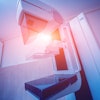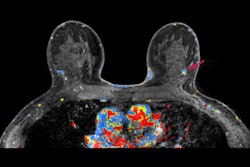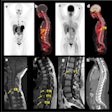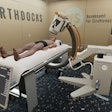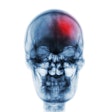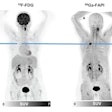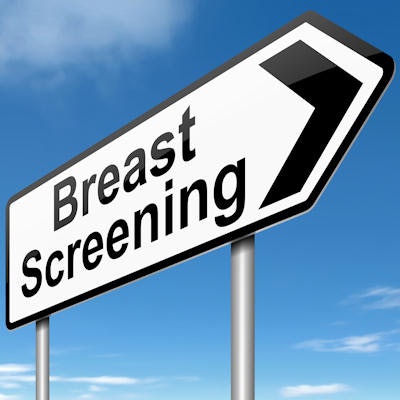
An independent review of adult screening programs in England -- including the country's breast cancer program -- has called for sweeping reform, including a new governance model and the replacement of outdated IT systems and imaging equipment.
The review of the national programs for breast cancer, cervical cancer, abdominal aortic aneurysm, bowel cancer, and diabetic eye screening in England was performed by Dr. Sir Michael Richards, former national cancer director for the U.K. Department of Health and Social Care. It was commissioned in October 2018 in the aftermath of a series of blunders, including the disclosure in April 2018 that tens of thousands of women may not have received invitations to a final round of breast screening due to a computer failure.
In a final report published on 16 October, Richards offered several key recommendations for improving the national screening programs. First, a single advisory body should be established, bringing together the current functions of the U.K. National Screening Committee on population screening and the National Institute for Health and Care Excellence (NICE) on screening for people at elevated risk for serious conditions, according to Richards. This body would then make screening recommendations to the ministers in all four U.K. countries.
"In England, it follows that funding decisions on targeted screening should be made by ministers, supported by the chief medical officer and chief scientific adviser, rather than relying on local commissioning," Richards wrote. "This would mirror the current approach for population screening."
Richards also recommended that screening programs -- which are currently split in governance between Public Health England (PHE) and National Health Service (NHS) England -- should become the responsibility of only NHS England. Screening quality assurance and commissioning teams should also be brought together under NHS England.
Outdated equipment
In the report, Richards also highlighted the urgent need to replace IT systems, especially in the programs for breast and cervical cancer screening. In addition, he pointed out the need for expanded diagnostic capacity to meet the increasing demand for screening due to the maturing age of the baby boom generation.
"With symptomatic breast services experiencing a similar increase in workload, both find themselves in competition for the same services and facilities," he wrote. "The replacement of capital equipment, including both mammography machines and mobile vans, also tends to be unaffordable for trusts given severe constraints on capital funding and huge demands for other capital investment, such as backlog maintenance. The prime minister's recent announcement of new funding to replace old screening and diagnostic equipment is a welcome first step."
Richards also believes that steps need to be taken to address the ongoing decline in the number of people seeking screening -- particularly in the breast and cervical cancer programs. He recommended that screening providers universally implement effective interventions for increasing screening uptake. Such measure include the use of social media, for example, or text reminders to patients.
"Providers should also be incentivized through tariffs or other measures to provide screening or other services at times which are convenient," he wrote.
RCR reaction
The U.K. Royal College of Radiologists (RCR) hailed the final report and called for Richards' proposals to be quickly implemented.
"Sir Mike's final report is a real achievement," said Dr. Caroline Rubin, RCR vice president for clinical radiology, in a statement. "It builds on his interim conclusions from earlier in the year, comprehensively covers the challenges and opportunities of the national screening programs -- as well as addressing future targeted schemes -- and sets clear recommendations for improvement that we fully support."
Specifically, the RCR applauded Richards' recommendations for separate ownership and advisory input for the screening programs, which should enable "much-needed innovation," Rubin said. Furthermore, the college welcomes Richards' recommendations to improve sharing of big data amassed from the screening programs. This should also speed up innovation, especially for the development and testing of artificial intelligence (AI), according to Rubin.
"References are made to the promise of AI to support mammography screen reading and the turnaround of breast scans -- AI will help to ease escalating workforce pressures but, as Sir Mike says, it is not a panacea for the lack of imaging staff to run breast screening," Rubin noted.
Breast screening IT
The RCR also welcomed Richards' call on the NHS to provide urgent, measured improvements to breast screening IT and infrastructure.
"IT updates are deplorably overdue and will be vital to improving uptake and cancer detection," Rubin wrote.
The RCR also noted that incorporating weighted funding for targeted screening of those at increased risk into current and developing screening programs should enable seamless adoption of newly identified risk factors and decrease geographical variation in accessing and delivering targeted screening schemes.
Richards' review originally was meant to include recommendations on workforce capacity, but that issue is, tellingly, now set to be addressed independently in an upcoming report, according to the college.
"It is reassuring to see he so clearly understands the constraints on workforce, admitting that many of the review's proposals to increase breast screening uptake -- including extended access to screening appointments and clinics and 34-month reminders -- have the potential to exacerbate workforce pressures," Rubin wrote.
Government reaction
In a written statement, England Secretary of State for Health and Social Care Matt Hancock said that he agrees with Richards on the need for robust governance and clear responsibility and accountability for the different elements of screening.
"Working closely with Public Health England and NHS England we will ensure functions are located in the best place to deliver a high-quality service, building on the joint work that both organizations have already been implementing," he wrote. "I also agree it is important that screening programs receive independent external scrutiny and we will continue to work with PHE and NHS England to design an optimum quality assurance process."
Hancock also concurs with Richards on the need for a single source of national expert advice on both population- and target-based screening. With that in mind, PHE will take on this role, building on its current role of providing support to the U.K. National Screening Committee, he said. Hancock has also asked England Chief Medical Officer Dr. Chris Whitty to work with counterparts across the U.K. to consider the details of the proposed new advisory mechanism and how it could meet the needs of all four U.K. countries.
"By extending and consolidating our arrangements for providing independent expert advice on all screening programs, we will improve delivery and exploit the huge scientific progress that is being made to deliver faster and better access to the latest and best screening interventions," he wrote. "NHS England will become the single body responsible for the delivery of screening services."
Imaging equipment upgrades
Hancock also acknowledged Richards' comments on the need for significant investment in diagnostic capacity, and he pointed to his recent announcement that the U.K. government will invest 200 million pounds (225 million euros) to replace outdated mammography, CT, and MRI units with new systems.
"This [initiative] will significantly improve the ability of the NHS to diagnose cancer and will support the commitment in the NHS Long-term Plan to ensure 55,000 more people survive cancer each year," he wrote.
Hancock said he also recognizes the "immense value" that research adds to the understanding of screening and that he is determined to ensure that cutting-edge data techniques will be used. This effort will be led by NHSX, the unit of the NHS tasked with overseeing digital innovation.
The report's full recommendations will need further consideration, "taking into account the potential impact on current service delivery to ensure any changes can be delivered safely and consistently," he noted
"We will consider the review's report and recommendations and develop an implementation plan, which we will publish in due course," he said.



